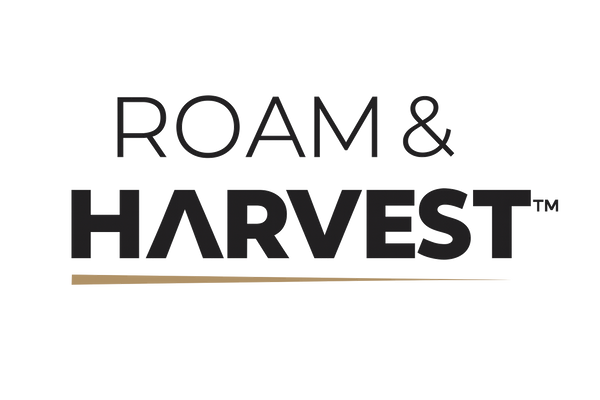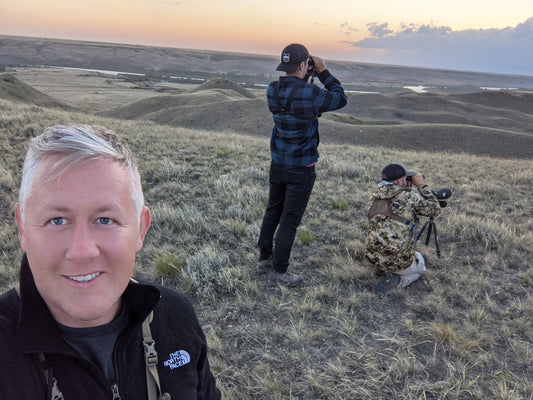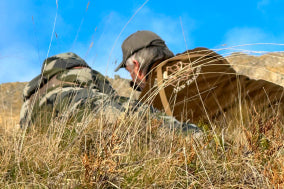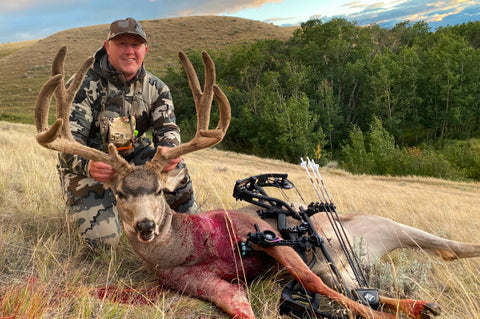Hunting and conservation might seem like opposing concepts, but they are deeply intertwined. Many hunting organizations play a pivotal role in wildlife conservation efforts, working to protect habitats, maintain healthy wildlife populations, and ensure sustainable hunting practices. Through advocacy, research, and funding, hunters and hunting organizations contribute to preserving natural resources for future generations.
Let’s explore some of the most prominent organizations that work with hunters to promote conservation and how they impact wildlife and ecosystems.
Ducks Unlimited (DU)
Ducks Unlimited is one of the most recognizable conservation organizations in North America, founded by waterfowl hunters in 1937 during the Dust Bowl era. Their mission is to conserve, restore, and manage wetlands and associated habitats for North America's waterfowl. Wetlands are crucial not only for ducks but also for a wide range of species, including fish and mammals. These areas also serve as natural water filters and buffers against floods.
Hunters play a significant role in supporting DU’s work through memberships, donations, and participation in fundraising events. Since its inception, DU has conserved more than 15 million acres of wetlands, making it one of the largest conservation success stories in the world. Through careful management of wetland habitats, DU has helped restore vital ecosystems, benefiting both wildlife and communities.
Rocky Mountain Elk Foundation (RMEF)
The Rocky Mountain Elk Foundation (RMEF) was founded in 1984 by four hunters who wanted to ensure the future of elk populations and their habitat. The organization’s mission is to protect and enhance habitat for elk and other wildlife, as well as to open public access to hunting and recreation.
RMEF has conserved or enhanced over 8 million acres of wildlife habitat, permanently protecting vital lands for elk and other species. The foundation works with landowners, government agencies, and other partners to ensure healthy, sustainable populations of elk, deer, and other wildlife.
RMEF also funds scientific research and supports predator management, working to maintain balanced ecosystems that benefit both wildlife and hunters. Through donations, volunteer work, and partnerships with the hunting community, RMEF ensures that elk and other big game species thrive across their historic ranges.
National Wild Turkey Federation (NWTF)
The National Wild Turkey Federation (NWTF), founded in 1973, has played a crucial role in the restoration of wild turkey populations in North America. At the time of its founding, wild turkey numbers were at an all-time low due to overhunting and habitat loss. Thanks to the NWTF’s efforts, wild turkey populations have rebounded to over 7 million birds, and turkey hunting is now a cherished part of American hunting culture.
The NWTF focuses on habitat conservation, forest restoration, and ensuring sustainable hunting opportunities. They work closely with private landowners, state agencies, and hunters to restore vital turkey habitats. NWTF’s initiatives, such as "Save the Habitat. Save the Hunt.," promote the conservation of nearly 4 million acres of critical habitat while increasing hunting access.
Hunters play an essential role in funding these efforts through memberships, banquets, and local chapter activities. By working with hunters and other conservationists, the NWTF has ensured that future generations can enjoy the thrill of turkey hunting while helping preserve wild turkey populations.
Safari Club International (SCI)
Safari Club International (SCI) is an organization that combines hunting advocacy with global conservation efforts. SCI supports sustainable hunting as a tool for wildlife management and economic development, especially in areas where regulated hunting can support local communities and wildlife conservation.
SCI works to ensure that hunting remains a valuable conservation tool by supporting wildlife research, anti-poaching efforts, and habitat restoration projects. The organization also fights for hunters' rights and promotes ethical hunting practices. Through the SCI Foundation, they fund numerous conservation initiatives around the world, ranging from restoring habitats for endangered species to supporting community-based wildlife management programs in Africa.
SCI is particularly active in advocating for sustainable hunting practices in developing nations, where hunting plays a significant role in funding conservation. Hunters who participate in regulated, ethical hunting through SCI-supported programs contribute directly to conserving threatened species and their habitats.
Theodore Roosevelt Conservation Partnership (TRCP)
Named after one of America’s most famous hunter-conservationists, Theodore Roosevelt Conservation Partnership (TRCP) aims to guarantee all Americans quality places to hunt and fish by working to conserve fish and wildlife habitats and securing funding for conservation initiatives.
TRCP brings together diverse stakeholders, including hunters, anglers, conservation organizations, and policymakers, to advocate for better conservation practices at both state and federal levels. They work to protect public lands, restore degraded habitats, and ensure that wildlife conservation receives adequate funding.
The organization emphasizes collaboration and brings hunters and policymakers together to influence laws and regulations that affect wildlife conservation and public access. Hunters play an active role in TRCP’s efforts, advocating for legislation that benefits not only game species but entire ecosystems.
Pheasants Forever (PF)
Pheasants Forever (PF), along with its sister organization Quail Forever, works to conserve upland bird habitats across North America. Founded by a group of pheasant hunters in 1982, PF focuses on creating and maintaining habitat for pheasants, quail, and other upland species.
PF’s unique model allows local chapters to retain 100% of their fundraising dollars to fund projects in their specific regions. This community-driven approach ensures that conservation efforts are tailored to the needs of local habitats and wildlife populations.
Through partnerships with landowners, farmers, and government agencies, PF has restored millions of acres of habitat, promoting healthy wildlife populations. Hunters contribute through memberships, donations, and volunteering in habitat restoration projects, playing a key role in upland bird conservation.
Conclusion: Hunters as Conservationists
Hunting organizations like Ducks Unlimited, RMEF, NWTF, SCI, TRCP, and Pheasants Forever demonstrate that hunters are not only passionate about their sport but are also dedicated conservationists. By supporting these organizations, hunters actively contribute to preserving habitats, protecting wildlife, and ensuring that future generations can enjoy the outdoors.
Conservation efforts are deeply linked to ethical and sustainable hunting, and organizations like these are crucial to maintaining a healthy balance between wildlife management and hunting traditions. Whether through donations, memberships, or volunteering, hunters can continue to play a vital role in the ongoing fight to conserve wildlife and natural resources.




